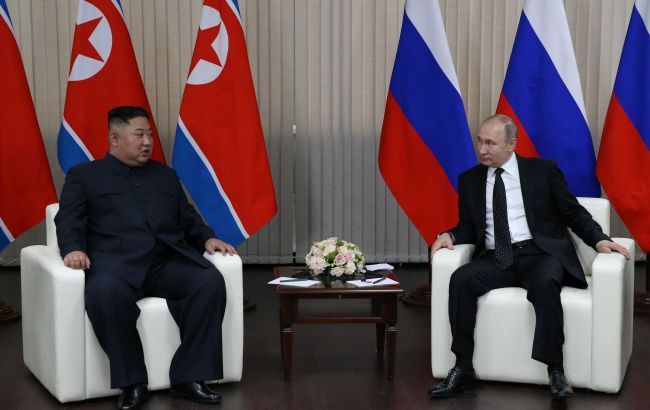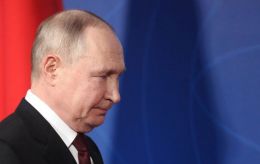North Korea received help from Moscow to launch spy satellite - Intelligence
 DPRK launches spy satellite with Moscow's help (Photo: Getty Images)
DPRK launches spy satellite with Moscow's help (Photo: Getty Images)
South Korean intelligence stated that North Korea received assistance from Russia for the successful launch of a spy satellite this week, according to Reuters.
The launch marked North Korea's third attempt, following two failures, and the first since Kim Jong Un's visit to Russia in September, during which Vladimir Putin promised to help Pyongyang with satellite development.
According to Yoo Sang Bum, a member of the parliamentary intelligence committee, after negotiations, North Korea shared data on the carrier rockets used in two previous satellite launches, and Russia offered its analysis of the data.
"Regarding the success of the third launch, the National Intelligence Service assessed that there was assistance from Russia," Yoo told reporters, citing Putin's publicly stated promise to help North Korea with the carrier rocket and data exchange between Pyongyang and Moscow.
North Korean state media reported on November 22 that Kim Jong Un received images of U.S. military facilities over Guam, but Yoo said it is challenging to verify if the satellite is capable of producing such images.
South Korean military claimed that parts of the rocket salvaged after the failed second launch in May indicated it could not be used as a reconnaissance satellite.
"They were not in a situation to determine the satellite's capabilities unless North Korea releases a video showing that it took those pictures of Guam," Yoo said, referring to the intelligence agency.
Yoon Kyung Eun, another committee member, stated that the launch was successful as the satellite entered orbit, and North Korea may launch more satellites and conduct nuclear tests next year.
The launch of the spy satellite
The latest satellite launch by North Korea drew condemnation from the U.S. and other Western countries, while South Korea suspended parts of the 2018 military agreement with North Korea.
Russia and North Korea deny weapons agreements but pledged to intensify military cooperation.
UN resolutions, backed by Russia, prohibit the development of technologies used in North Korea's ballistic missile programs, as well as cooperation in nuclear science, technology, aerospace industry, and aviation technology."

